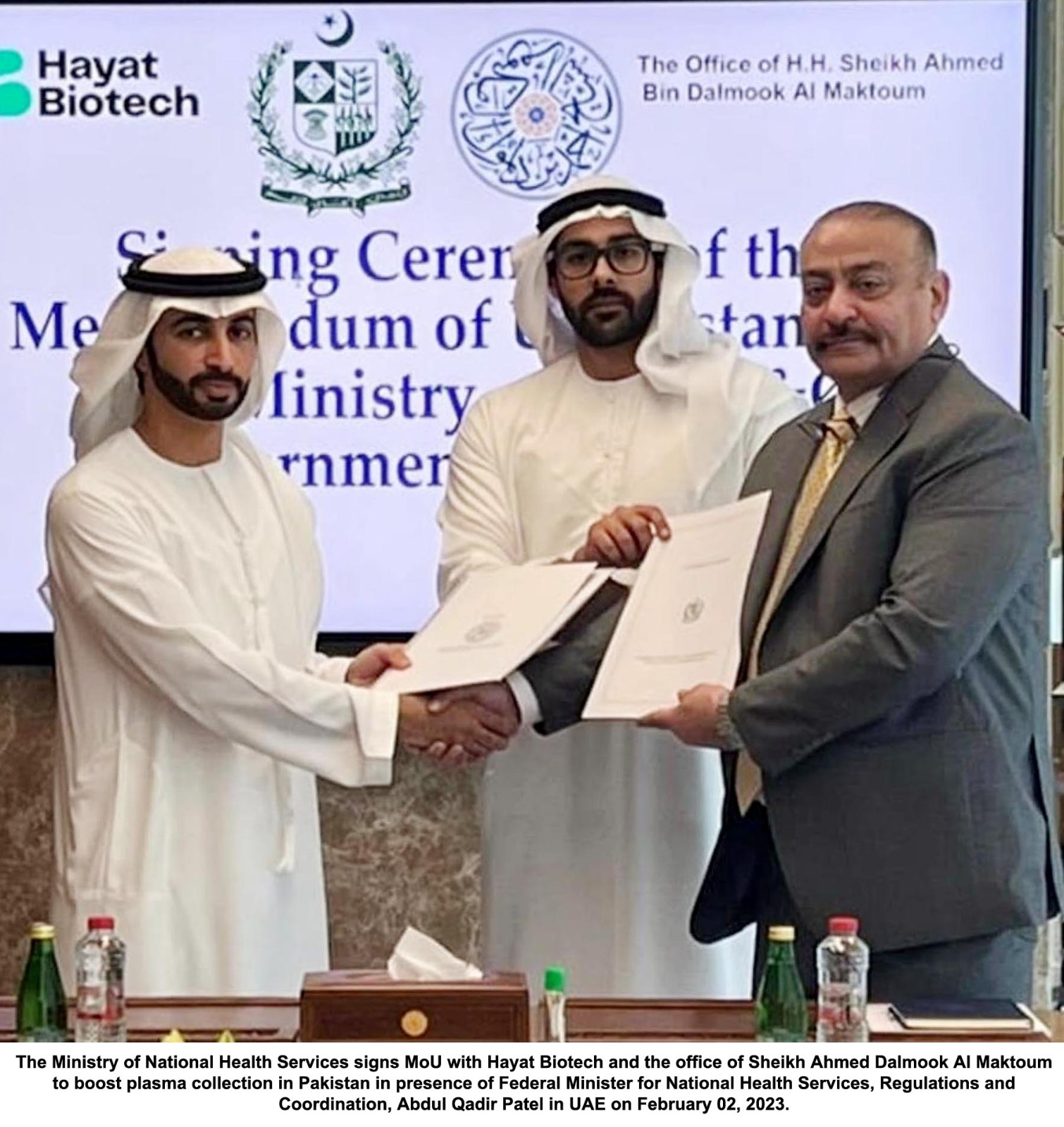The Ministry of National Health Services signed an MoU with Hayat Biotech and the office of Sheikh Ahmed Dalmook Al Maktoum to boost plasma collection in Pakistan.
Plasma shortage is fast becoming a global concern with a 20% drop in plasma donations between 2020-2021 and a growing demand for plasma-based therapies
The MoU stands to boost Pakistan’s plasma sector using a phased approach.
United Arab Emirates, February 3, 2023 – Hayat Biotech, one of the leading biotechnology companies in the MENA region, along with the office of Sheikh Ahmed Dalmook Al Maktoum has signed a Memorandum of Understanding (MoU) with the Ministry of National Health Services, Regulations and Coordination in Pakistan as part of the country’s consolidated efforts towards establishing a comprehensive plasma sector.
Plasma is the primary component used in manufacturing plasma-derived pharmaceutical products which treat a wide spectrum of rare, chronic, and potentially life-threatening health conditions. The plasma collection sector is growing at a tremendous rate, and Pakistan’s patient population is heavily reliant on plasma-based therapies for both survival and improved quality of life.
Globally, there has been a decline in plasma supply due to COVID-19. During the pandemic, plasma collection has fallen drastically primarily due to concerns from donors about visiting collection centers.
To overcome supply issues, Hayat Biotech is working closely with the Ministry of National Health Services in Pakistan to address the national shortage by establishing an end-to-end plasma collection entity within the country. As per the MoU, the entities will take a phased approach in rolling out the collection centers while simultaneously building the nation’s technological capabilities and capacity for long-term operations.
Senior business leaders from the UAE and Ministry of National Health Services have reaffirmed, through the signing of the MoU, their commitment towards addressing the critical need of plasma-based therapies for the welfare of Pakistan’s patient community. The MoU comes as a promise to building a more robust and technically sound plasma collection infrastructure in Pakistan and paves the way for further international collaborations to meet the global plasma shortage.

